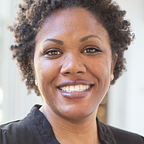What it means to try to belong
I have spent more time in the Bronx wandering it and thinking about it in the past year than I have since I was a teenager. I am wondering, or have been wondering about why, exactly, I am obsessed with the place, given its history as a site of ill-repute and disrepair, disinvestment; as a symbol of poverty, urban blight and what it means to hide immigrants and poor people in plain sight within an empire.
Reflecting on the domestic terrorism that has bubbled up to the surface again this month made it more urgent to consider this territoriality anew. High on my list of reasons to love The Bronx is that I am permitted freedoms of movement here that don’t exist for me anywhere else — at least not to the same degree. Yes, I am grown and American and I can do what I want. But I keep thinking about a couple of summers ago when it seemed every other day there was another instance of what Teju Cole referred to as “Can’t relax, Black” with white people calling the police on Black people who were just wandering or BBQ-ing or hanging out at Starbucks. I carry the anxiety of those headlines in my bones.
And while I am not sure I know — or that I have known, in the past — what it means to belong in or to a place, or really, to a group of people, I am, at least, not out of place here. It feels like the least a Black woman can expect in the way of belonging and safety in 2021 is to not stand out from the crowd in an era of white nationalist fervor and anger. I want that sentence to mean less in the wake of this historic week but I fear it means more.The safest option, even when the world is quarantining during a pandemic, is to not make oneself more of a target for surveillance or harassment.
In the before times, I found subtle ways of trying to take up less space knowing I would be in a situation, or traveling to a place, where I would be The Only One or One of The Onlies. The stress of living in a cauldron of constant chaos and upheaval is offset by the relief of not having to navigate multiple reactions to my Blackness and my womanhood and their intersection, which seems to be the most intimidating and off-putting fact of my existence of all.
Staying in my lane, or my neighborhood, has become my safety, my insurance. My safety is that I am surrounded by others who more or less expect me to be here. That…
